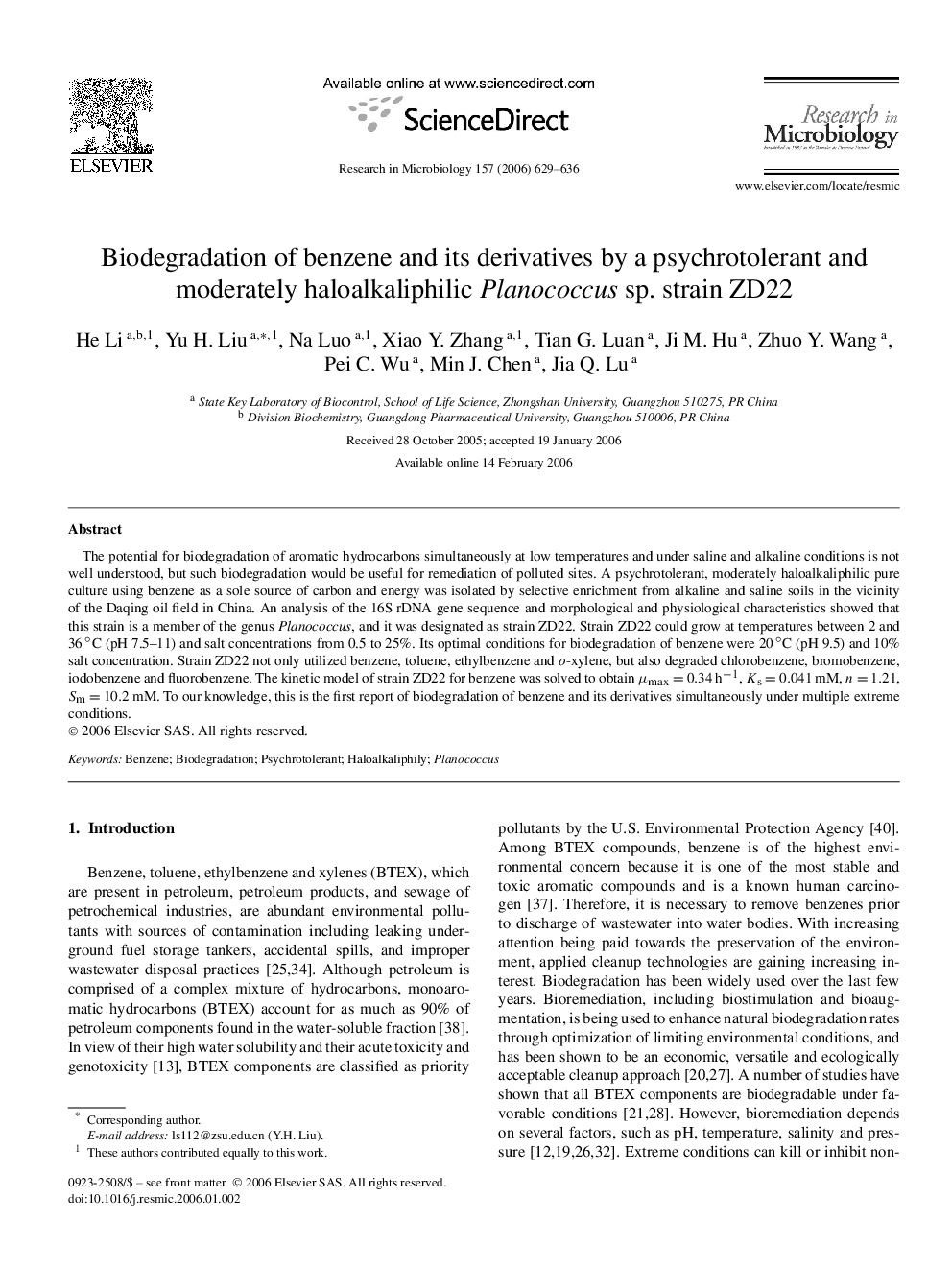| Article ID | Journal | Published Year | Pages | File Type |
|---|---|---|---|---|
| 4359556 | Research in Microbiology | 2006 | 8 Pages |
The potential for biodegradation of aromatic hydrocarbons simultaneously at low temperatures and under saline and alkaline conditions is not well understood, but such biodegradation would be useful for remediation of polluted sites. A psychrotolerant, moderately haloalkaliphilic pure culture using benzene as a sole source of carbon and energy was isolated by selective enrichment from alkaline and saline soils in the vicinity of the Daqing oil field in China. An analysis of the 16S rDNA gene sequence and morphological and physiological characteristics showed that this strain is a member of the genus Planococcus, and it was designated as strain ZD22. Strain ZD22 could grow at temperatures between 2 and 36 °C (pH 7.5–11) and salt concentrations from 0.5 to 25%. Its optimal conditions for biodegradation of benzene were 20 °C (pH 9.5) and 10% salt concentration. Strain ZD22 not only utilized benzene, toluene, ethylbenzene and o-xylene, but also degraded chlorobenzene, bromobenzene, iodobenzene and fluorobenzene. The kinetic model of strain ZD22 for benzene was solved to obtain μmax=0.34 h−1, Ks=0.041 mM, n=1.21, Sm=10.2 mM. To our knowledge, this is the first report of biodegradation of benzene and its derivatives simultaneously under multiple extreme conditions.
